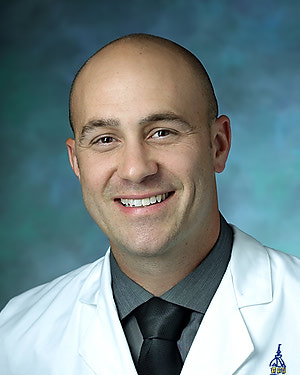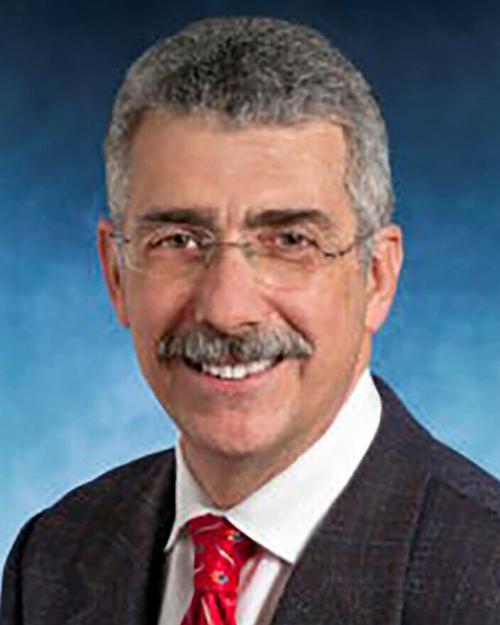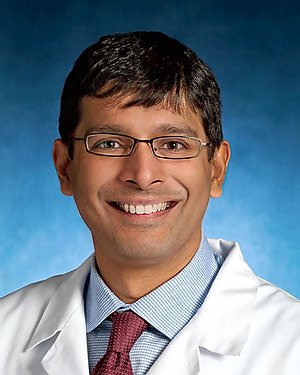Research Lab Results
-
Eric McCollum Lab
Research in the Eric McCollum Lab focuses on pediatric pulmonary medicine, particularly pulmonary diseases among children in undeveloped, low-resource countries. We are taking part in the IMPACT trial, which looks at the impact of bubble continuous positive airway pressure (bCPAP) on the mortality of Malawian children with pneumonia.
-
Nicholas Dalesio Lab
Research in the Nicholas Dalesio Lab is currently examining pre-surgical predictors of post-surgical respiratory complications in children with obstructive sleep apnea and sleep-disordered breathing; the impact of anesthesia and pharmacological agents on upper airway physiology; and techniques for pediatric airway imaging.
-
M-Irfan Suleman Lab
Research in the M-Irfan Suleman Lab focuses on better understanding and controlling pediatric pain. We've played a key role in the discovery of novel techniques for post-surgical pain management in children. -
Robert Greenberg Lab
Researchers in the Robert Greenberg Lab examine anesthesiology and critical care-related topics that include critical airway management, non-invasive fetal monitoring, neural blockade monitoring, pediatric acute pain management, cuffed oropharyngeal airway (COPA), pain informatics, and pediatric pain education and innovation.
-
Rahul Koka Lab
Research in the Rahul Koka Lab focuses on pediatric airways, patient safety and health disparities. Recent studies have focused on the relationship between socioeconomic status and perioperative outcomes and patient safety factors related to interoperative cardiac arrests. We also performed effects analyses of the maintenance and repair of anesthetic equipment in various medical environments. -
Shivani Patel Lab
Investigators in the Shivani Patel Lab study ways to improve intraoperative resuscitation during pediatric surgeries.
-
Pediatric Cerebral Palsy and Epilepsy Lab
The team headed by Shenandoah “Dody” Robinson, M.D., professor of neurosurgery, neurology and pediatrics, studies perinatal brain injury and repair. Employing developmentally age-appropriate models, the lab investigates neurological consequences of extremely preterm birth, including cerebral palsy, chronic pain, cognitive and behavioral impairment, epilepsy and posthemorrhagic hydrocephalus of prematurity. -
Aniket Sidhaye Lab
Dr. Sidhaye is interested in improving the care of persons with cystic fibrosis, type 1 diabetes mellitus and hospitalized person with diabetes. research topics include bone health of persons with CF undergoing lung transplant, CF-related diabetes mellitus, Care of persons with type 1 diabetes mellitus transitioning from pediatrics to adult specialty clinics, Management of hospitalized persons with diabetes.
-
Jantzie Lab
Dr. Jantzie, associate professor, received her Ph.D. in Neurochemistry from the University of Alberta in 2008. In 2013 she completed her postdoctoral fellowship in the Department of Neurology at Boston Children's Hospital & Harvard Medical School and became faculty at the University of New Mexico. Dr. Jantzie then joined the faculty Departments of Pediatrics (Neonatal-Perinatal Medicine) and Neurology at Johns Hopkins University and the Kennedy Krieger Institute in January 2019. Her lab investigates the pathophysiology of encephalopathy of prematurity, and pediatric brain injury common to infants and toddlers. Dr. Jantzie is dedicated to understanding disease processes in the developing brain as a means to identifying new therapeutic strategies and treatment targets for perinatal brain injury. Her lab studies neural substrates of cognition and executive function, inhibitory circuit formation, the role of an abnormal intrauterine environment on brain development, mechanisms of neurorepair and microglial activation and polarization. Using a diverse array of clinically relevant techniques such as MRI, cognitive assessment, and biomarker discovery, combined with traditional molecular and cellular biology, the Jantzie lab is on the front lines of translational pediatric neuroscience.?
-
DNA Diagnostic Lab
Established in 1979, the Johns Hopkins DNA Diagnostic Laboratory is a CLIA and CAP certified; Maryland, New York, and Pennsylvania licensed clinical genetics testing laboratory specializing in rare inherited disorders. Led by renown professor of pediatrics and medical genetics Dr. Garry R. Cutting, the lab offers testing for a range of approximately 50 phenotypes and disorders totaling 3,500 tests annually.



